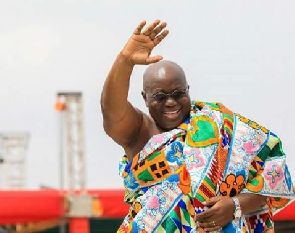
The rationale for investing Ghana’s Heritage Fund and The Stabilization Fund in some foreign investment portfolio’s making 2% – 2.5% annually has been questioned by many who feel it is not sound financial management practice. Per the Petroleum Revenue Management Law, government is required to wholly invest the Ghana Stabilization Fund and the Heritage Fund in instruments issued by Sovereign States and International Financial Institutions. The Law provides the framework that guides the collection, allocation and management of petroleum revenue for the benefit of the current and future generations.
The Petroleum Revenue Management Law addresses three specific challenges – how much of the revenue will be spent now? How much of it to be saved and the means of de-coupling government spending from the volatility of petroleum prices? How to safeguard the rest of the economy from undue exchange rate pressures? The idea was to make sure that management of petroleum revenue was based on sound sustainable fiscal policies because resources were finite.
The Heritage Fund which was established in 2011 as of Dec 2016, has accumulated a total of US$262.57m representing 8% of total oil revenue according to Bank of Ghana (BoG) statistics. The Stabilization Fund on the other hand has had US$633.87m representing 18% of oil revenues paid into it. The rest of Ghana’s oil revenue is allocated to the Annual Budget Funding Amount (ABFA) so far totalling some US$1.5 billion representing 43% of total oil revenues and GNPC.s allotted amount US$1,057 million (a little over US$1 billion) representing 31% of total oil revenues.
Returns on Ghana’s Heritage fund has not been good since 2011 with the returns averaging 2% – 2.5%. According to BoG’s own statistics, returns on 2015 was particularly bad with the first half of the year at 0.54% and the second half reaching 0.74%. It has since picked up with first half of 2016 reaching 4.93% and the second half declining to 2.99%. How will it fare in 2017?
Global trends leave an impact on the fund’s investment performance. The trend towards de-globalization stemming from the protectionist rhetoric of far-right politicians in Europe and North America, the rise of nationalism, Brexit, and Trump’s America first agenda, the slow growth in China and India etc. may all impact negatively on the performance of the fund. The fund does well when there’s global free trade but when the rhetoric is about a coming trade war between China and the USA for example, the impact of such foreign sovereign instruments is bad.
Whereas the Heritage Fund will ensure intergenerational equity because of the finite nature of resource revenue which compels some governments to save windfall revenues for future generation, the Stabilization Fund would be used to mitigate volatile situations that might arise in future. Since oil and mineral revenues were not perpetual, if a country did not employ them efficiently they might never help in achieving a better development. Experience elsewhere suggest that proper and responsible management of petroleum revenue is essential for the future development of the country.
This brings into question how can we ensure that the Heritage Fund whose main purpose is to ensure inter-generational equity in the oil revenue is truly invested in a way that will benefit future generations and the country?
The senior Minister Mr. Yaw Osafo Marfo suggested the use of the Heritage Fund in funding the government’s free SHS program. The NPP government has not told us how much the free SHS program is going to cost the nation per year. We are not sure if the program has been costed yet. Whereas the free SHS program is a laudable idea that will improve access, I am sure the government is also looking at how it can improve quality as well. Improved access without improved quality will be meaningless. If emphasis is placed on Technical, Vocational Education and Training (TVET) in the skills that are needed to power the 21st Century economy and equip the students with such skills that will enable them to compete in the 21st Century global market place or set up and run their own business based on the skills they acquired at school, then using the Heritage fund for such a purpose would be a brilliant idea. It means we are investing in the future generations, building the human capital base of the economy, a key asset of the nation for economic development.
Since we don’t know how much the Free SHS program will cost annually, the Heritage Fund may not even be enough to fund the program. Remember, the Fund has some accumulated earnings of less than US$265m. The government must enforce tight revenue collection and management system to prevent the leaks in our public purse. I always say that our two harbours at Tema and Takoradi alone can give us more than US$3billion annually if we impose a water tight revenue collection and management system in place. It will save us trips to IMF annually begging for a bailout. The government of NPP under Nana Addo must also expedite work on and be ruthless in getting us back all the monies we lost through shameful and dubiously corrupt contracts through GYEEDA, Asongtaba, AGAMS, Rlg, SUBAH, SADA, bus branding, Woyome etc. All these hundreds of millions of dollars perhaps surpassing billions will go a long way to ensure that the free SHS program will be well funded and from our own resources. Ghana is not poor, we manage our resources poorly but we are not poor.
